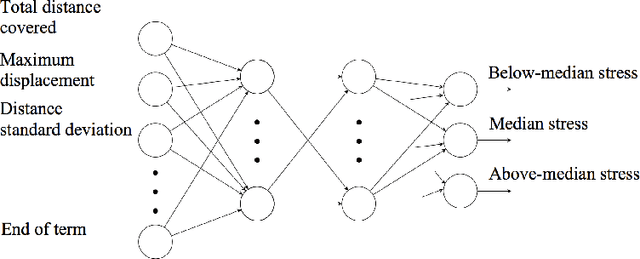Gatis Mikelsons
Towards Deep Learning Models for Psychological State Prediction using Smartphone Data: Challenges and Opportunities
Nov 16, 2017

Abstract:There is an increasing interest in exploiting mobile sensing technologies and machine learning techniques for mental health monitoring and intervention. Researchers have effectively used contextual information, such as mobility, communication and mobile phone usage patterns for quantifying individuals' mood and wellbeing. In this paper, we investigate the effectiveness of neural network models for predicting users' level of stress by using the location information collected by smartphones. We characterize the mobility patterns of individuals using the GPS metrics presented in the literature and employ these metrics as input to the network. We evaluate our approach on the open-source StudentLife dataset. Moreover, we discuss the challenges and trade-offs involved in building machine learning models for digital mental health and highlight potential future work in this direction.
 Add to Chrome
Add to Chrome Add to Firefox
Add to Firefox Add to Edge
Add to Edge